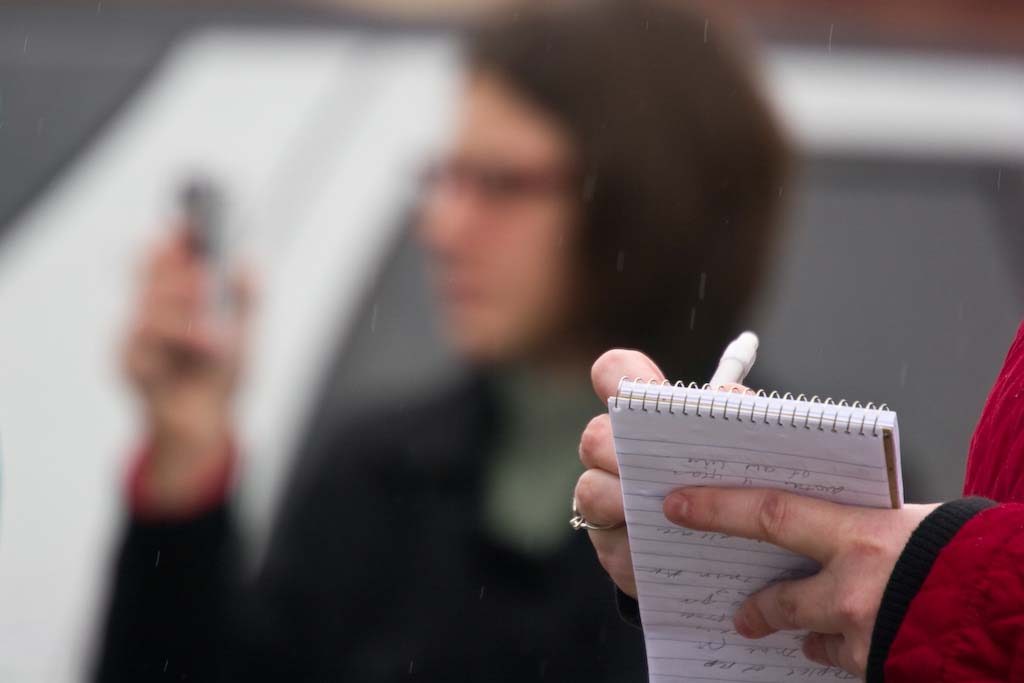A law on accessing information would be crucial, given that obtaining certain files can be a challenge for journalists in the country.
Qatar’s Shura Council has approved a draft law regulating the right to access information on Monday, following an “extensive discussion” on the matter.
“The council proceeded with its work, where it was briefed on the Legal and Legislative Affairs Committee of Shura Council report pertaining to the draft law governing the right to access information,” said the legislative body.
In a bid to “keep pace with global developments” with regards to accessing information, Qatar’s Cabinet had approved a draft law on the matter in March this year.
This regulates “the right to obtain information” and was referred to the Shura Council at the time, the body which stamps the final decision.
The draft law was prepared by the Administrative Control and Transparency Authority and was seen as a positive move towards achieving more transparency in the country, given that no country in the Gulf region has a Right to Information act, though some have variations of it.
While no further details were provided on the draft law, it would potentially bump up Qatar’s position in terms of media freedom, as it would enable professionals in the sector to perform their jobs with fewer obstacles.
According to a 2016 report by The Peninsula, the draft law was previously recommended by the Doha Centre for Media Freedom at the time, in collaboration with the Qatar Lawyers Association and National Human Rights Committee.
However, there had been no updates on it since as the Doha Centre for Media Freedom was shut down in 2019 for reasons that remain unclear.
In 2005, Qatar joined the international community in signing the 2003 UN Convention Against Corruption.
The convention states that one measure to fight corruption includes “adopting procedures or regulations allowing members of the general public to obtain, where appropriate, information on the organisation, functioning, and decision-making processes of its public administration”.
Currently, Qatar ranks 25 out of 100 on the Freedom House Index, which in turn labels the country as “not free”. The organisation believes that official information in Qatar is “tightly controlled”.
Media freedoms and the right to access information are key pillars in country-based global rankings, including the Freedom House Index.
Freedom of information, as per the UN’s definition, stipulates “that the fundamental right of freedom of expression encompasses the freedom to seek, receive and impart information and ideas through any media and regardless of frontiers”.
Right to information around the world
Globally, Sweden was the first country to enact a Right to Information act in 1966, followed by the US in 1967, then Australia, New Zealand and Canada in 1982.
In the Middle East, Jordan was the first to introduce the law in 2007, followed by Morocco during the Arab Spring, when pro-democracy demonstrations erupted across various MENA countries.
Rabat was the first in the region to describe the right to access information as a constitutional right.
Other MENA countries later followed suit, including Tunisia in 2014 and Algeria in 2016. Despite this, press remains restricted with Tunisian police storming and shutting down Al Jazeera in July last year, during what has been described as a coup d’etat by Kais Saied.
In Saudi Arabia, there is a right to information policy, which allows individuals to submit requests regarding public information in exchange for a financial fee. Citizens in Saudi Arabia also have the right to know the reason behind the rejection of their requests for information, and appeal against the decision.
Excluded information includes those that harm the kingdom’s “national security, policy, interests, or rights” and “includes recommendations, suggestions, or consultations for the issuance of legislation or government decision has not yet been issued”.
In Saudi Arabia, scientific or technical research under intellectual property is also excluded along with information related to bids and auctions. No one can access personal, military and security or investigation-based information either.
Dubai had introduced Law 26 of 2015 “Regulating Data Dissemination and Exchange”, with the establishment of its public governmental portal for information, “Bayanat”.
The Dubai law only applies to federal and local government entities, and people “who produce, own, disseminate, or exchange any data relating to the Emirate”.
Despite the provision of such policies, activists say the Saudi and Emirati government’s suppressive measures on critics outweigh their place in terms of freedom of expression.
The killing of Saudi journalist Jamal Khashoggi in 2018, at the kingdom’s consulate in Istanbul, has particularly amplified concerns over the freedom of expression in the country.
Meanwhile in Kuwait, Majlis Al Ummah, the equivalent of the Shura Council, introduced a draft law on the right to access information in 2020, followed by the government’s executive regulations in 2021.
However, it restricts information that “harms national security, public security or defence capabilities”. As the UN states in 1946’s General Assembly Resolution 59(1), “Freedom of Information is a fundamental right and is the touchstone of all the freedoms”.
Though they exist in different parts of the world, there appears to be a missing element in the overall agreed definition of ‘freedom of expression’.







